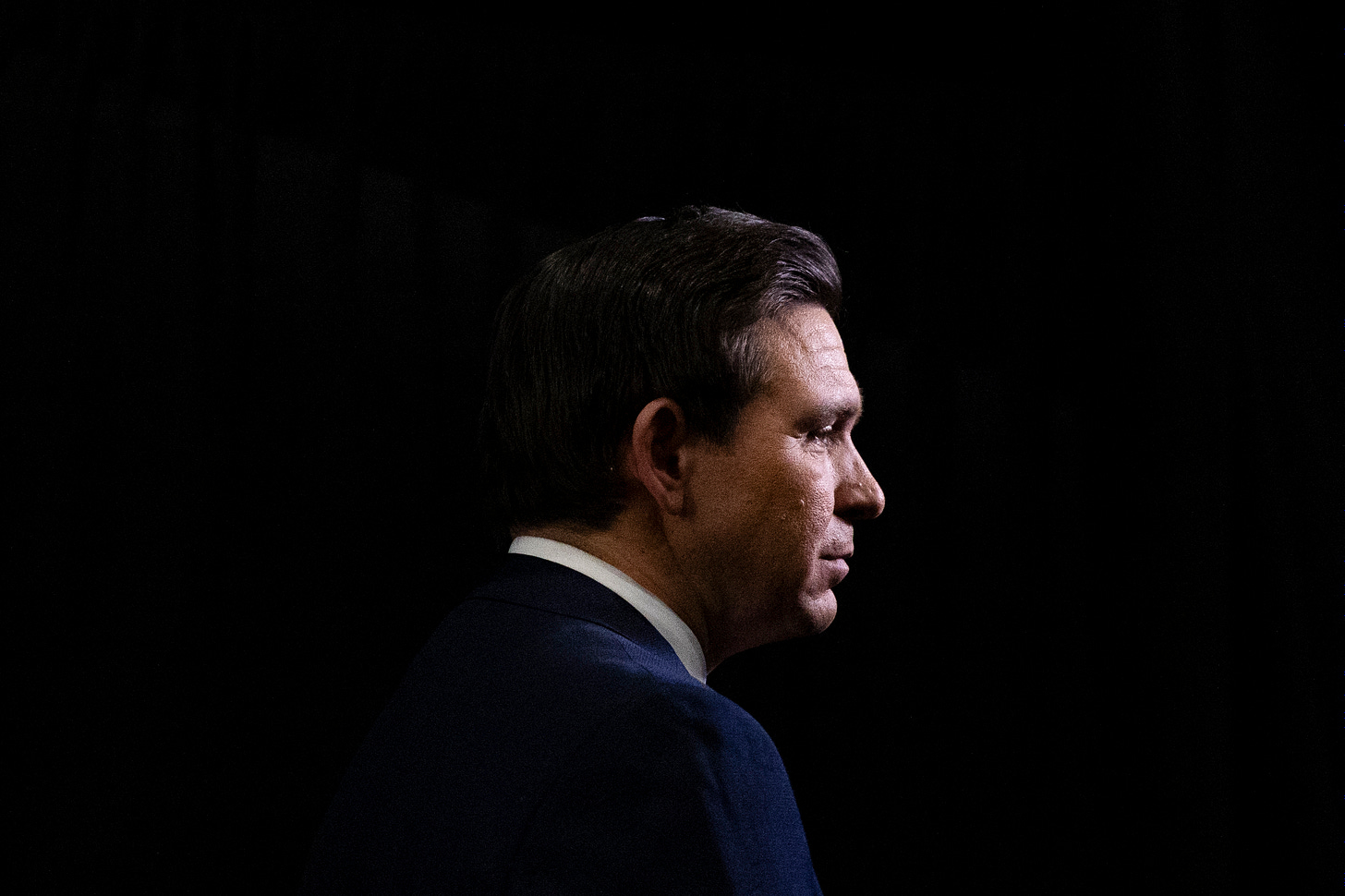

Florida Governor Ron DeSantis speaks to the media in the spin room after the fifth Republican presidential primary debate at Drake University in Des Moines, Iowa, on January 10, 2024. (Photo by CHRISTIAN MONTERROSA/AFP via Getty Images)
It will be weeks – perhaps years – before the full implications of last night are clear. But I want to start with the biggest, most immediate problem:
At the federal level, there will be no center of power from which to organize resistance to Trumpism.
The White House will not have any Mike Pences or John Kellys in it.
The Supreme Court will likely soon have a full majority — five justices — appointed by Trump. And that’s just the floor. He could get to six.
The Senate could be under Republican control for the next decade.
It is still possible at the time of writing that Democrats will win a slim majority in the House of Representatives, and if so, that would be important. But right now I wouldn’t put any cash on it.
What this fully unified and politicized control of the federal government will mean is that there will be no center of power around which to organize opposition to Trump’s actions. And he also happens to have newly created criminal immunity.
Also: there will be no national political figure around whom the resistance can rally. Joe Biden is in an eclipse. Kamala Harris has been rightly rejected by the public. There is no one who can unite the opposition, who can gather a force to create a popular movement against Trumpism.
If you look at the national stage, Donald Trump stands completely triumphant. No opposition. Without a credible rival, even on the distant horizon. His forces are clustered while the opposition is scattered and leaderless.
What this means is that the task of pushing back against Trump will fall on the state level. It will be up to a Democratic governor to make his or her state the center of opposition to Trumpism.
In this regard, their model should be Ron DeSantis.